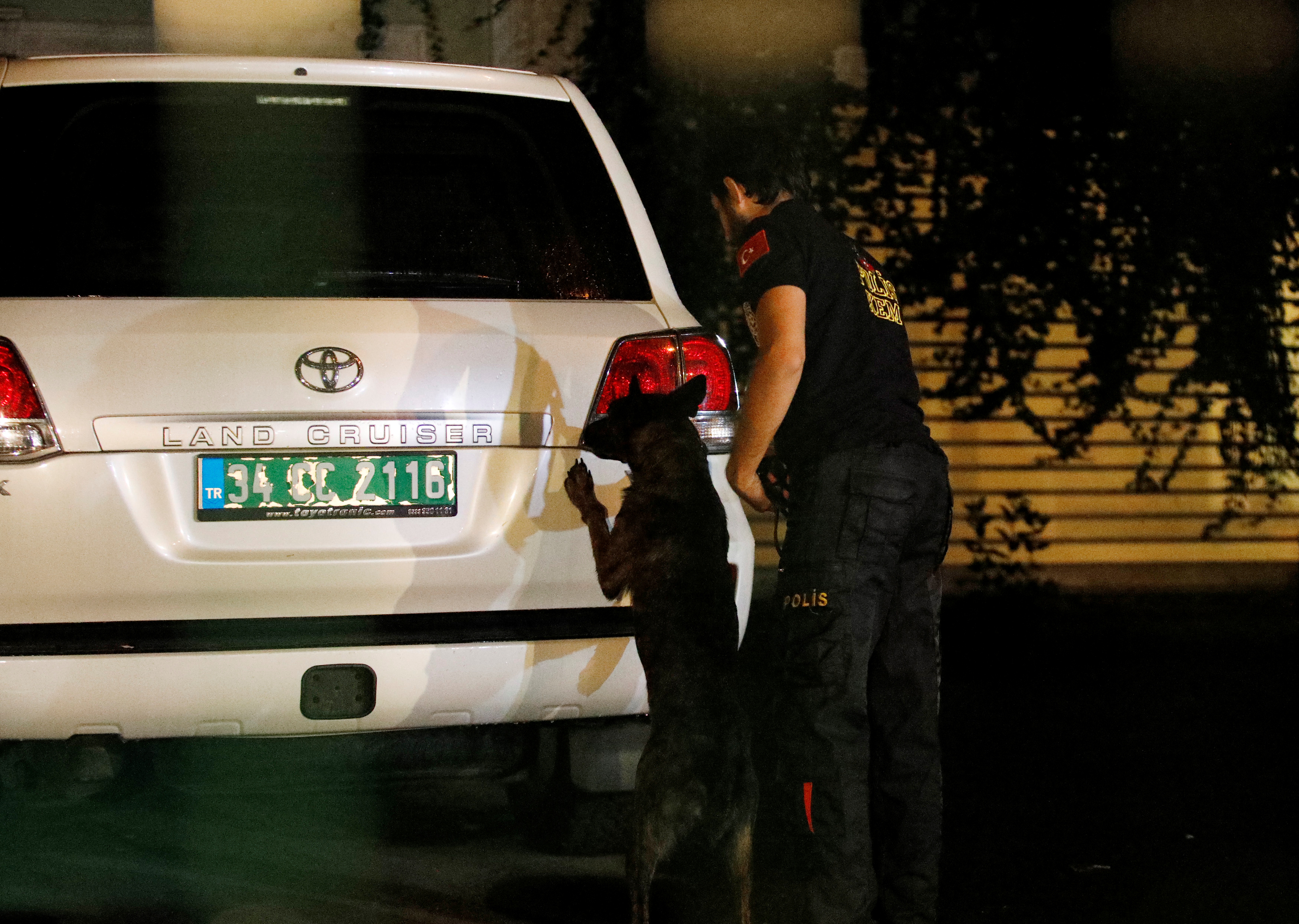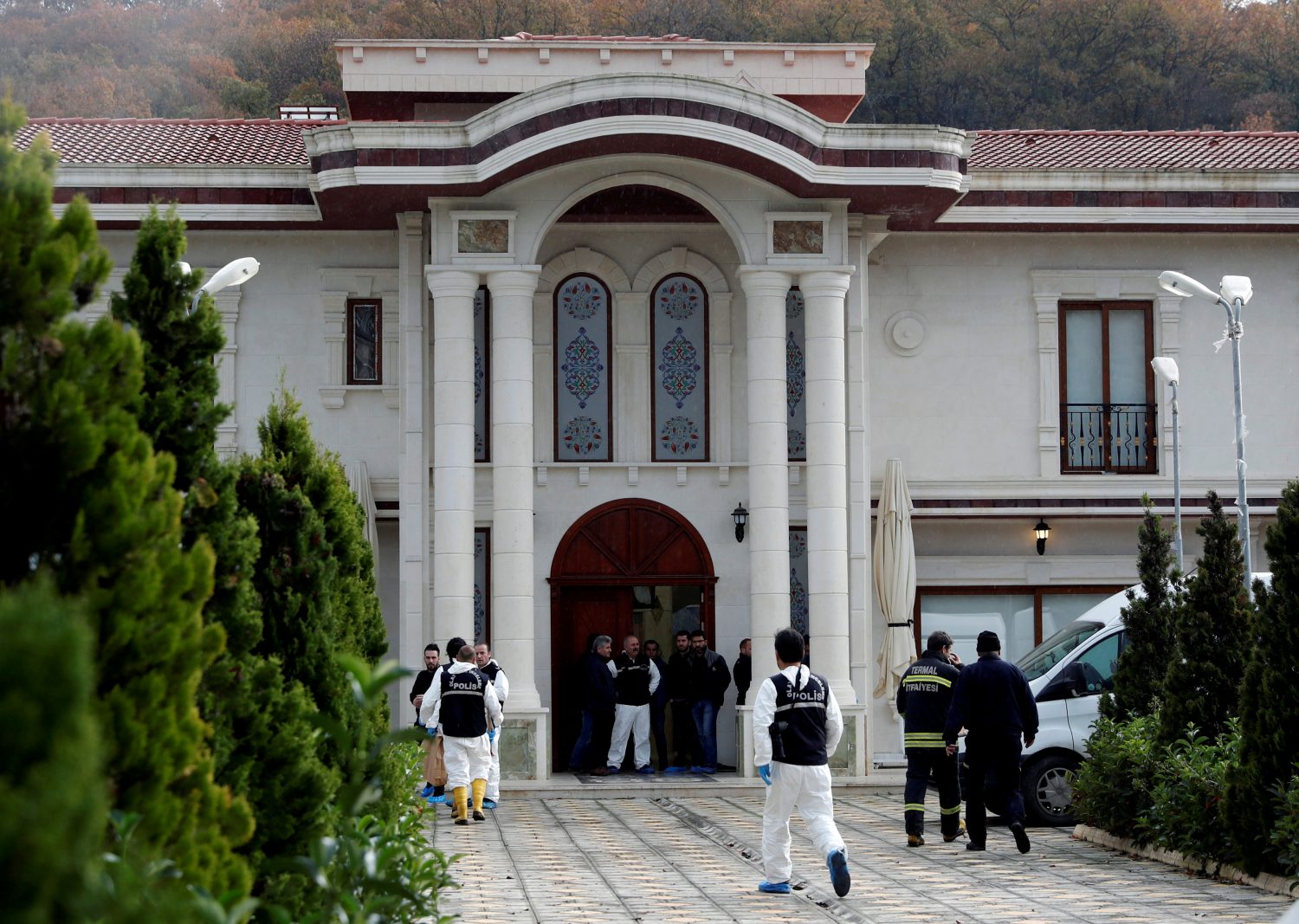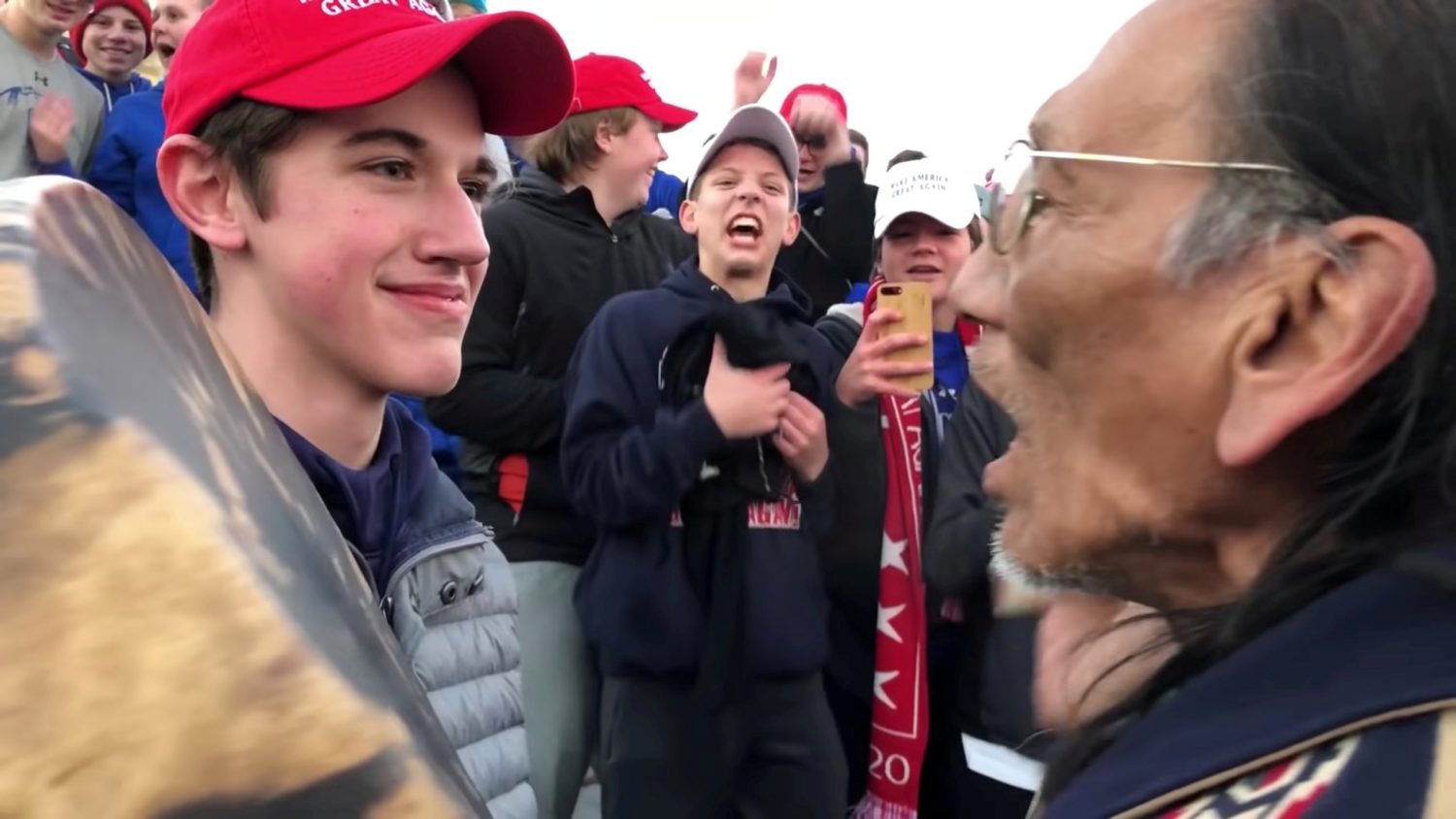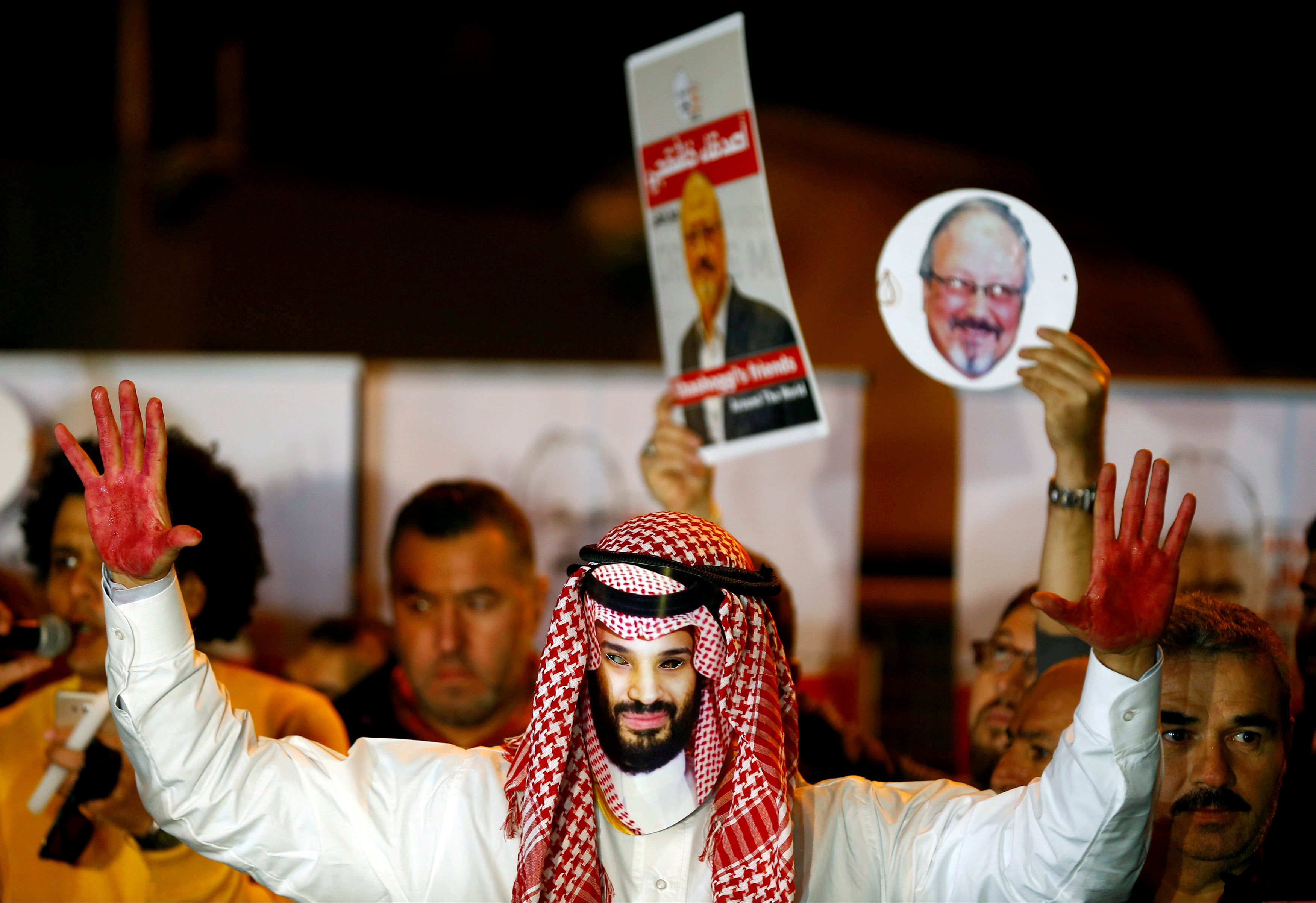
By Bulent Usta
ISTANBUL (Reuters) – Turkish investigators searched Saudi Arabia’s consulate in Istanbul for a second time overnight looking for clues into the disappearance of Saudi journalist Jamal Khashoggi, and senior European ministers pulled out of an investment summit in Riyadh amid global concern over the incident.
The team left the consulate early on Thursday after searching the building and consular vehicles, a Reuters witness said. They used bright lights to illuminate the garden.
Earlier, they spent nearly nine hours in the Saudi consul’s residence along with Saudi investigators. The Turkish search, which used a drone, included the roof and garage.
Turkish officials say they believe Khashoggi – a U.S. resident and Washington Post columnist who was a strong critic of Crown Prince Mohammed bin Salman – was murdered at the consulate on Oct. 2 and his body chopped up and removed.
He had gone to the consulate seeking documents for an upcoming marriage and has not been seen since. Saudi Arabia has denied involvement in the disappearance.
The incident has caused a global outcry but also poses a dilemma for the United States and other Western nations, which have lucrative business dealings with the authoritarian kingdom and count on it as a leading Middle East ally and opponent of their common enemy Iran.
It also wields huge influence as the world’s top oil exporter.
How Western allies deal with Riyadh will hinge on the extent to which they believe responsibility for Khashoggi’s disappearance lies with Prince Mohammed and the Saudi authorities.
On Wednesday, U.S. President Donald Trump said he did not want to abandon Saudi Arabia and needed to see evidence of any role by Riyadh. He was waiting to hear back from Secretary of State Mike Pompeo, who met Saudi and Turkish leaders on a mission to the region this week.
Trump, who has forged closer ties with Saudi Arabia and the 33-year-old prince in an effort to counter Iranian influence in the Middle East, has speculated without providing evidence that “rogue killers” could be responsible.
DESERT STORM
European governments have expressed concern about Khashoggi’s disappearance but face a similarly delicate situation.
However, three senior ministers said they were pulling out of a high-profile investment conference in Riyadh later this month, joining a list of international officials and business executives to boycott the event.
French Finance Minister Bruno Le Maire cited concerns about Khashoggi. British trade minister Liam Fox followed suit, with his spokesman saying: “Those bearing responsibility for his disappearance must be held to account.”
Dutch Finance Minister Wopka Hoekstra also scrapped plans to attend while the Dutch government cancelled a trade mission to Saudi Arabia next month.
U.S. Treasury Secretary Steven Mnuchin said his plans to attend would be revisited on Thursday after U.S. officials consult Pompeo.
Russian President Vladimir Putin meanwhile said Moscow did not have enough information about Khashoggi’s disappearance to justify harming ties with Riyadh. His government would wait for details, he told a forum in the Black Sea resort of Sochi.
The New York Times reported on Wednesday that U.S. intelligence officials are increasingly convinced of Prince Mohammed’s culpability in Khashoggi’s killing but have not yet been able to collect direct evidence. Saudi authorities did not immediately comment on the report.
Turkish sources have said the authorities have an audio recording indicating Khashoggi was killed inside the consulate.
The pro-government Yeni Safak newspaper published on Wednesday what it said were details from audio recordings that purported to document Khashoggi’s torture and interrogation.
Khashoggi’s torturers severed his fingers during the interrogation and later beheaded and dismembered him, it said.
Reuters has been unable to confirm the report with Turkish officials.
Turkey has not shared with the U.S. government or European allies audio or video evidence, seven U.S. and European security officials have told Reuters.
The United States and its allies have collected some intelligence through their own sources and methods, which partly confirms news reports based on leaks of audio recordings, four of the sources said.
FREE REIN
Turkish pro-government newspaper Sabah reported last week that investigators had identified a 15-member Saudi intelligence team that arrived in Istanbul on diplomatic passports hours before Khashoggi disappeared.
Prince Mohammed has painted himself as the face of a new, vibrant Saudi Arabia, diversifying its economy away from reliance on oil and making some social changes.
But he has faced criticism including over the arrest of women activists, a diplomatic row with Canada and Riyadh’s involvement in the Yemen war during which air strikes by the coalition Saudi Arabia leads have killed thousands of civilians.
Khashoggi, a royal insider who once advised former Saudi intelligence chief Prince Turki al-Faisal, has never shied away from criticising Saudi policies.
The Washington Post published a column it received from his assistant after he went missing in which Khashoggi condemns the crackdown on journalists by Arab governments and the failure of the international community to respond.
“As a result, Arab governments have been given free rein to continue silencing the media at an increasing rate,” he wrote.
(Additional reporting by Umit Ozdal, Yesim Dikmen and Tuvan Gumrukcu in Istanbul, John Irish and Sudip Kar-Gupta in Paris, Bart Meijer in Amsterdam, Alistair Smout and Kylie MacLellan in London; Writing by Daren Butler and Stephen Kalin; Editing by Angus MacSwan)













